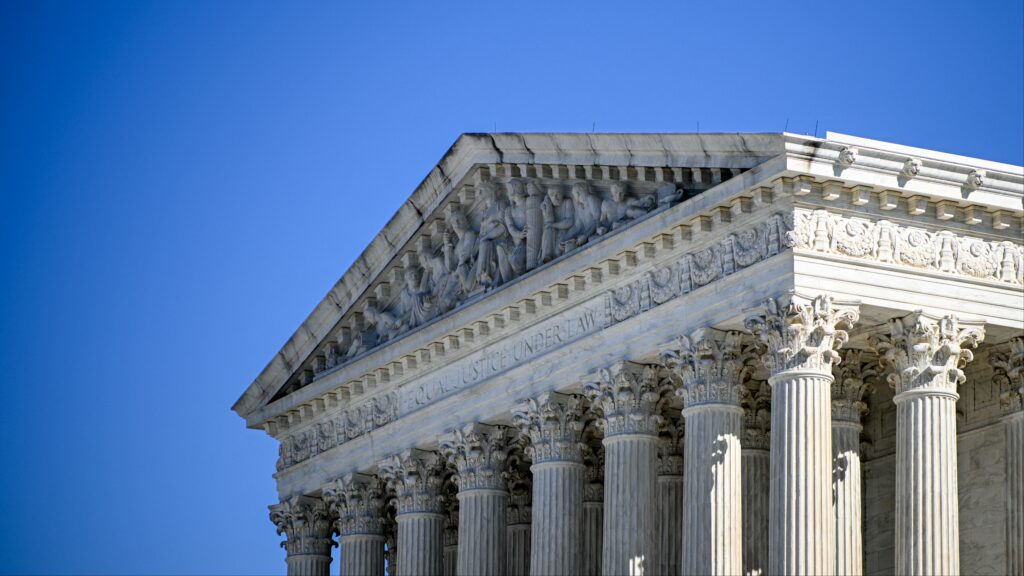As social media sites were flooded with misleading posts about vaccine safety, mask effectiveness, Covid-19’s origins and federal shutdowns, Biden officials urged platforms to pull down posts, delete accounts, and amplify correct information.
Now the Supreme Court could decide whether the government violated Americans’ First Amendment rights with those actions — and dictate a new era for what role, if any, officials can play in combating misinformation on social media.
The Supreme Court is set to hear arguments next month in a case that could have sweeping ramifications for federal health agencies’ communications in particular. Murthy v. Missouri alleges that federal officials coerced social media and search giants like Facebook, Twitter, YouTube, and Google to remove or downgrade posts that questioned vaccine safety, Covid’s origins, or shutdown measures. Biden lawyers argue that officials made requests but never forced companies.
Government defenders say that if the Court limits the government’s power, it could hamstring agencies scrambling to achieve higher vaccination rates and other critical public health initiatives. Critics argue that federal public health officials — already in the throes of national distrust and apathy — never should have tried to remove misleading posts in the first place.



If yelling “Fire!” In a crowded theater is not protected speech then any kind of healthcare misinformation shouldn’t be either.
The whole reason you can’t yell “Fire!” In a crowded theater is because people could get hurt or killed.
Covid misinformation also gets people killed.
Seems pretty clear to me.
SCOTUS: 5 of us concur, and it is clear that yelling “fire” in a crowded theater must be considered protected speech.
Yup. Stacked court means it’s okay to tell people to inject bleach to cure disease.
For what it’s worth, yelling “Fire” in a crowded theater is not unprotected speech in and of itself. It became a popular analogy in US jurisprudence after being used by Justice Holmes in Schenck v. United States, but it had nothing to do with the question, holding, or even the dicta of the case itself (it was more or less just an off the cuff analogy). This was later tested and clarified by the Branderburg standard which held that for speech to cross the line to incitement (and thus not be constitutionally protected), it must be “directed to inciting or producing imminent lawless action” and “likely to incite or produce such action.” Under that standard, the covid argument would fail.
That being said, many municipalities have disorderly conduct and disturbing the peace laws that will likely get you in trouble if you went around yelling “fire” in crowded spaces (especially dif you actually incited a stampede or a crowd crush, which could then have you on the hook for more serious charges).
But can you yell “There’s no fire!” In a crowded theater that has a fire?
How convincing are you?
That’s a privilege reserved only for Rene Magritte.